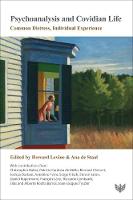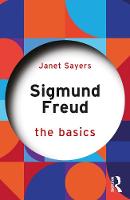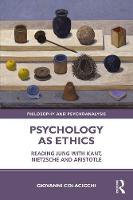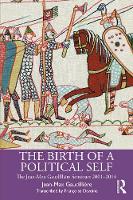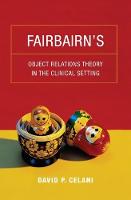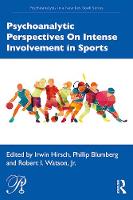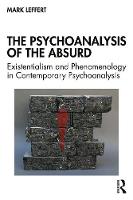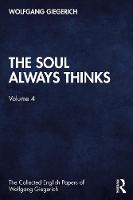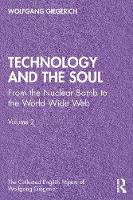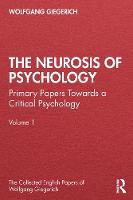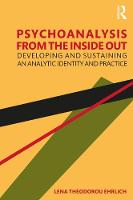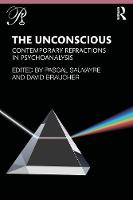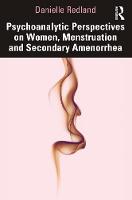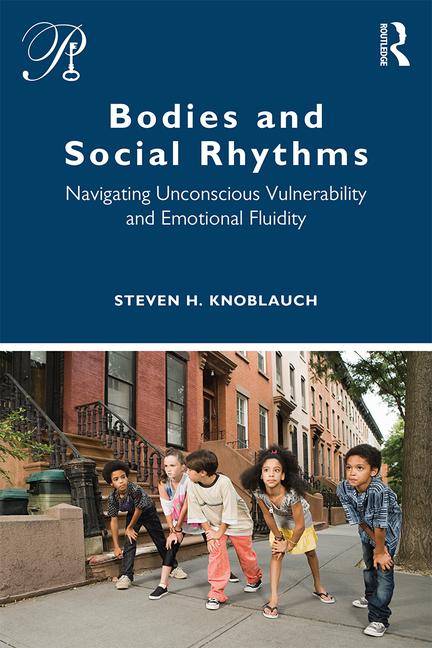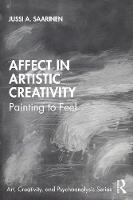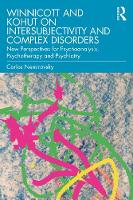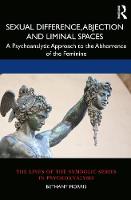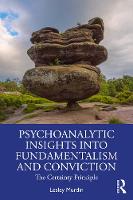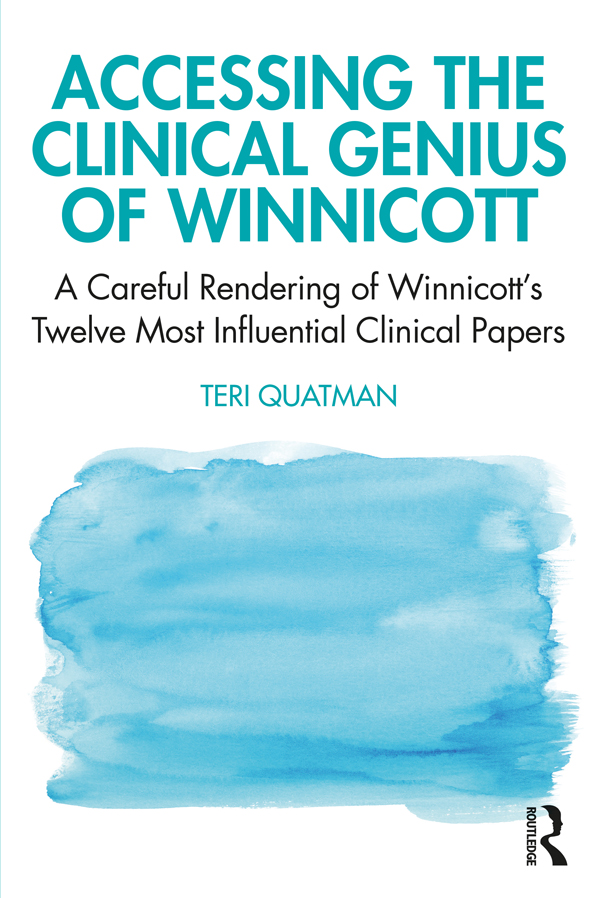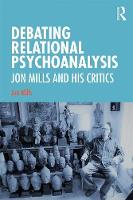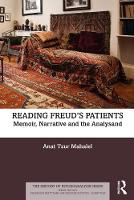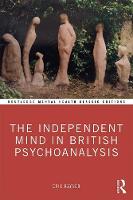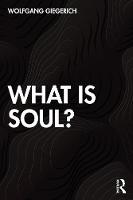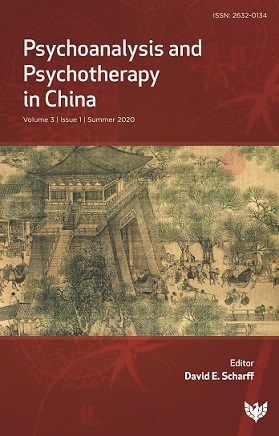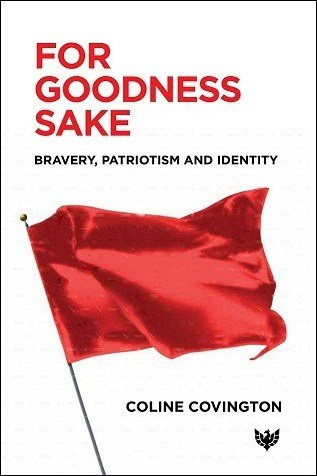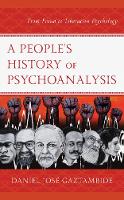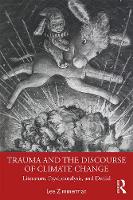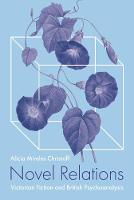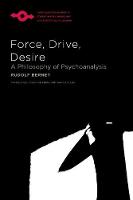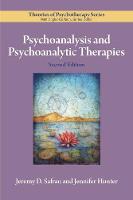Psychoanalysis Books
Psychoanalysis and Covidian Life: Common Distress, Individual Experience
Bringing together a dozen contributions from psychoanalysts of many different countries and theoretical orientations, Psychoanalysis and Covidian Life, a collective work edited by Howard Levine and... (more)
Sigmund Freud: The Basics
Sigmund Freud: The Basics is an easy-to-read introduction to the life and ideas of Sigmund Freud, the founder of psychoanalysis and a key figure in the history of psychology.
Janet Sayers... (more)
Psychology as Ethics: Reading Jung with Kant, Nietzsche and Aristotle
Through his clinical work and extensive engagement with major figures of the philosophical tradition, Jung developed an original and pluralistic psycho-ethical model based on the cooperation of... (more)
The Birth of a Political Self: The Jean-Max Gaudilliere Seminars 2001-2014
This book provides a psychoanalytic reading of works of literature, enhancing the illuminating effect of both fields.
The second of two volumes, The Birth of a Political Self: The Jean-Max... (more)
Fairbairn's Object Relations Theory in the Clinical Setting
W. R. D. Fairbairn (1889-1964) challenged the dominance of Freud's drive theory with a psychoanalytic theory based on the internalization of human relationships. Fairbairn assumed that the... (more)
Psychoanalytic Perspectives On Intense Involvement in Sports
This book is a unique volume that brings a variety of psychoanalytic perspectives to the study of sport. It highlights the importance of sports for different individuals and how the function and use... (more)
The Psychoanalysis of the Absurd: Existentialism and Phenomenology in Contemporary Psychoanalysis
The Psychoanalysis of the Absurd offers an interdisciplinary study of Existentialism and Phenomenology and their importance to the clinical work of Contemporary Psychotherapy and Psychoanalysis. The... (more)
The Soul Always Thinks
C. G. Jung regarded the soul to be a reality in its own right which reflects itself in all manner of images and events. symbols and traditions. In this fourth volume of his Collected English Papers,... (more)
Technology and the Soul: From the Nuclear Bomb to the World Wide Web
C. G. Jung famously declared that it is not the psyche that is in us, but rather we who are in the psyche. Updating this insight, the second volume of Wolfgang Giegerich's Collected English Papers... (more)
The Neurosis of Psychology: Primary Papers Towards a Critical Psychology
This first volume of The Collected English Papers of Wolfgang Giegerich takes its title from Giegerich's ground-breaking paper, On the Neurosis of Psychology, or The Third of the Two, originally... (more)
Psychoanalysis from the Inside Out: Developing and Sustaining an Analytic Identity and Practice
In the face of considerable scepticism over the function and effectiveness of psychoanalysis, Lena Ehrlich demonstrates how analysis is unique in its potential to transform patients at an emotionally... (more)
The Unconscious: Contemporary Refractions In Psychoanalysis
This book explores the unconscious in psychoanalysisusing cross-disciplinary input from the cultural, social and linguistic perspectives. This book is the first contemporary collection applying the... (more)
Psychoanalytic Perspectives on Women, Menstruation and Secondary Amenorrhea
"I can be a mother, a wife, a daughter, a sister and a woman without having periods." This book explores two of the oldest and most important symbols of all time: menstruation and secondary... (more)
Bodies and Social Rhythms: Navigating Unconscious Vulnerability and Emotional Fluidity
This exciting new book traces the development of an unfolding challenge for psychoanalytic attention, which augments contemporary theoretical lenses focusing on structures of meaning, with an... (more)
Affect in Artistic Creativity: Painting to Feel
Why do painters paint? Obviously, there are numerous possible reasons. They paint to create images for others' enjoyment, to solve visual problems, to convey ideas, and to contribute to a rich... (more)
Winnicott and Kohut on Intersubjectivity and Complex Disorders: New Perspectives for Psychoanalysis, Psychotherapy and Psychiatry
Given the complexity of scientific developments inside and outside the psychoanalytic field, traditional definitions of basic psychoanalytic notions are no longer sufficiently comprehensive. We need... (more)
Sexual Difference, Abjection and Liminal Spaces: A Psychoanalytic Approach to the Abhorrence of the Feminine
This book uses an interdisciplinary approach to explore the ways in which sexual difference can be understood as an encounter with otherness through the abjected, investigating social discourses and... (more)
Psychoanalytic Insights into Fundamentalism and Conviction: The Certainty Principle
Psychoanalytic Insights into Fundamentalism and Conviction: The Certainty Principle examines the role of, and need for, certainty in mental life, addressing questions raised by fundamentalism and... (more)
Accessing the Clinical Genius of Winnicott: A Careful Rendering of Winnicott`s Twelve Most Influential Clinical Papers
Donald Winnicott, psychoanalyst and pediatrician, is viewed by many in the psychodynamic field as the “other genius” in the history of psychodynamic theory and practice, along with Freud. This book... (more)
Debating Relational Psychoanalysis: Jon Mills and his Critics
In Debating Relational Psychoanalysis, Jon Mills provides an historical record of the debates that had taken place for nearly two decades on his critique of the relational school, including responses... (more)
Reading Freud’s Patients: Memoir, Narrative and the Analysand
What would the story of analysis look like if it were told through the eyes of the analysand? How would the patient write and present the analytic experience? How would the narrative as written by... (more)
The Independent Mind in British Psychoanalysis
Arguably the most informative and readable account of the development of British independent psychoanalysis, Eric Rayner’s The Independent Mind in British Psychoanalysis offers a coherent account of... (more)
What is Soul?
Rooted in the metaphysics of bygone times, the notion of soul in our Western tradition is packed with associations and meanings that are incompatible with the anthropological and naturalistic... (more)
Psychoanalysis and Psychotherapy in China: Volume 3 Number 1
This peer-reviewed journal proposes to explore the introduction of psychoanalysis, psychoanalytic therapy, and the wider application of psychoanalytic ideas into China. It aims to have articles... (more)
For Goodness Sake: Bravery, Patriotism and Identity
In the midst of atrocities, there is the silent presence of the brave individuals who act and stand apart from the crowd, who risk their own lives by rescuing others and, in other ways, by voicing... (more)
A People's History of Psychoanalysis: From Freud to Liberation Psychology
Is psychoanalysis too "White" and upper class to be relevant to social and racial justice? Are its ideas and practices too "alien" for people of color? Can it shed light on why systems of oppression... (more)
Trauma and the Discourse of Climate Change: Literature, Psychoanalysis and Denial
The more the global north has learned about the existential threat of climate change, the faster it has emitted greenhouse gases into the atmosphere. In Trauma and the Discourse of Climate Change,... (more)
Novel Relations: Victorian Fiction and British Psychoanalysis
Novel Relations engages twentieth-century post-Freudian British psychoanalysis in an unprecedented way: as literary theory. Placing the writing of figures like D. W. Winnicott, W. R. Bion, Michael... (more)
Force, Drive, Desire
In Force, Drive, Desire, Rudolf Bernet develops a philosophical foundation of psychoanalysis focusing on human drives. Rather than simply drawing up a list of Freud's borrowings from Schopenhauer and... (more)
Psychoanalysis and Psychoanalytic Therapies
As the original theory of psychotherapy, psychoanalysis is often presented as a starting point in psychology theory courses. Yet, many people’s understanding of psychoanalysis is limited to the... (more)


